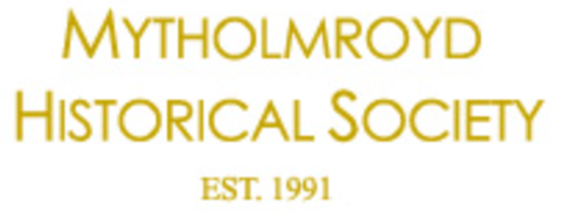This report on has been written by Mike Darke –
Last Friday evening 12th November, Mytholmroyd Historical Society held the third illustrated lecture of its Winter ‘21 – ‘22 programme. As usual the Society meets at 7.30pm on the second Friday of each month at St Michael’s Church Hall New Road, Mythomroyd. Non members (£3.00) are welcome.
Despite the appalling weather over 40 people attended to hear about the Wainstall Waifs from Kim Pearson who spoke very enthusiasically and informatively about the Wainstall Waifs.
Most of the waifs some 250 came from Liverpool to the mills of the Calverts at Wainstalls. They were not necessarily all orphans and most came from the Kirkdale workhouse. The Calvert Mill at Wainstall dates back to to the early 19th century and was a cotton spinning textile mill but as demand expanded so more mills owned by the Calvertv family were built all over Wainstalls such as New Mill and Upper Mill, Square Miill and Lumb Mill each now was concerned with the spinning of wool worsted cloth. By 1861 , 221 persons were employed in the mills and as the demand for labour grew the Calverts recruited the girls from Liverpool. Conditions of work were harsh but by the 1860s various Factory Acts now protected workers in respect to hours worked but contrary to some opinions the Wainstall Waifs were not slaves but most of the income they earned went towards their upkeep in the various cottages they lived in which were adjacent to their mill workplace.
Before being transported by train to Luddenden Foot the girls were given a medical for Tuberculosis which in those days was a rampant disease and a major killer and then they would be taken by horse and carriage to the fresh moorland air of Wainstalls – another world from the squalor urban environment of Liverpool.
Girls were preferred to boys as they were thought more reliable and were of a Protestant background and were recruited from the age of 10. They attended various local chapels but which one reflected the chapel choice of the Manager of the mill they were attached to which might for example, be Luddenden Dean Wesleyan Methodist Church or Booth Independent Chapel.
It should be remembered that the Wainstall Waifs as they are now referred to, were recruited not as apprentices but in fact through their experiences in the mill they worked in they in effect learnt a trade as worsted spinners. The skill they acquired was a form of female empowerment (one thinks of the previous months speakers topic ) and although at 16 they were free to leave, many stayed earned a wage and integrated into the local Wainstalls community. Some later married local men.
The graves of some of the Wainstall girls can be seen in the Luddenden Dean graveyard (the chapel was destroyed by fire in the late1950s), adjacent to the road to the gates of Castle Carr.
The vote of thanks was given by Mr Tony Wilson

